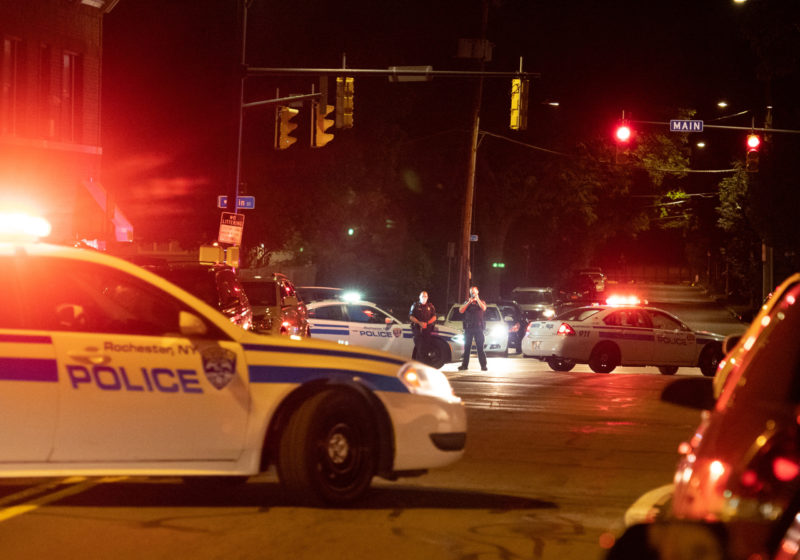The phrase “Defund the Police” was discussed in an event hosted by the UR School of Medicine & Dentistry students last Tuesday, led by Police Accountability Board Vice-Chair Dr. Celia McIntosh and UR associate professor of Anthropology Kristin Doughty.
During the event, the organizers discussed a couple of directions that Defunding the Police can take. Reform, whereby the public would restore legitimacy to the police force, focuses on repairing the damages of abusive policing practices enforced upon marginalized communities by retraining the police force to be less biased and holding officers accountable for abuses of power. Reformists believe that having police forces apologize for centuries of abuse and partner with community organizations would help them truly work toward a transformation and rebuild trust.
Many go further and advocate for defunding the police and refunding the community, reallocating the police budget to other community services.
Police abolitionists take the above idea further, and in addition to defunding the police, would like to see reduced and eventually eliminate contact between the public and police. Abolitionists seek to transform the pre-existing white supremacist rooted form of policing by disarming, disbanding, and disempowering the police system.
McIntosh said that she supports the reallocation route.
“Defunding the police essentially means the police will be funded but will not be overfund[ed],” she said. “The city budget will be redistributed […] [meaning] everyone [will get] a fair share in terms of the funding. [The phrase] ‘defunding the police’ makes it sounds like individuals want to terminate all funding […], but really it’s saying that we need to give the community a fair chance.”
She went on to say that redistributing the funds could help support community resources and other professionals in the medical and educational fields. This support would include having the community work together to provide support for those who need help instead of relying on police to act as mental health professionals and educational specialists.
“Even though we are talking about police brutality, health care providers also have a duty to do no harm,” McIntosh said. “Racism is a public health crisis and when providers have an underlying bias, they have the potential to do harm.”
Doughty said that the conversation of defunding the police should center around the terms of structural changes. Instead of forming discussions around who to blame, Doughty said that it is important to shift the discussion to “the pressing social problems” and their resources in order to help the community.
According to Doughty, the three key pieces to help with that shift are “think[ing] historically and comparatively” and understanding what policing is, “shifting the mindset from solving problems through capture and control to support,” and “think[ing] systematically and at [a] structural level as a society, a city, as a campus” what the problems and the “best systems to be put in place” are.
The event then shifted focus to the issue of policing: how one should address it and why it needs to change. To understand this issue, Doughty said that one should understand the underlying issue of redlining, a practice that involves identifying which areas are striving and which areas are struggling.
She went on to say that neighborhoods with a high rate of minority residents were more likely to be redlined because people of different races were deemed less desirable than white people.
This issue is evident in police brutality, as officers tended to live outside the city in predominantly white areas, and enter redlined and marginalized communities, Doughty said.
“The region where the 1964 race uprising occurred in Rochester was historically redlined,” Doughty said. “Daniel Prude was killed on a street corner in an area that was redlined. The officers who were involved in these killings and in these events live in areas that were not redlined; they were outside in the suburbs.”
Because these practices have decades-old roots in the system, Doughty said that it’s “hard to fix a system […] rooted in that logic.” In order to combat this, McIntosh brought up several suggestions, including developing a local 24/7 response team, having responsive mental health providers, mandating diversity training, and bringing in the “appropriate, diverse people and [having] these conversations.”
By doing these things, “essentially anyone can help the community be more sustainable,” McIntosh said.






